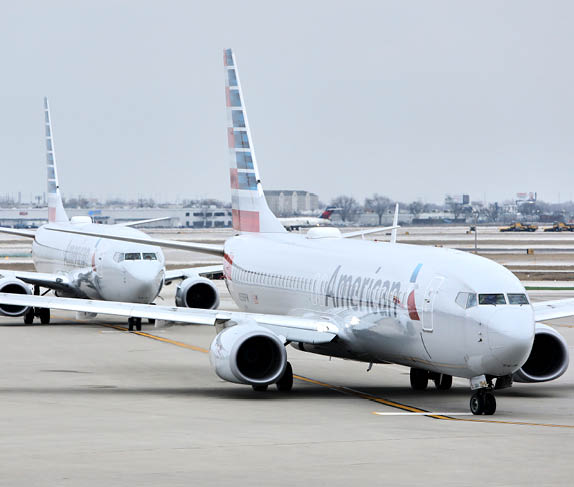The aviation asset backed securitisation (ABS) market has been effectively closed for the past 10 months as investors and leasing companies grappled with the impact of the coronavirus pandemic on the aviation industry. However, after months of successful capital raising by airlines and larger lessors in the capital markets, Castlelake deemed it the right time to test the market’s appetite for aviation ABS paper.
The company issued Castlelake Aviation Structured Trust 2021-1 on 19 January, comprised of two tranches of debt and a number of structural enhances to take into account the crisis-hit market. The deal is split into a $476 million class A notes, rated A by Kroll and A2 by Moody’s (its first aircraft ABS rating in more than a decade), with an initial loan-to-value (LTV) ratio of 60%, with a fixed coupon of 3.474% yielding 3.5%; and $119 million class B notes, rated BBB and Baa2 with a 74.9% LTV have a fixed coupon of 6.656% yielding 6.75%. The weighted average yield across the structure is 4.15%.
The B notes are reported to have been pre-sold. The wide disparity between the A and B coupons with the Bs priced as what C notes are usually offered at shows the B tranche was priced to move. Investors have also noted the much more conservative structure and quality of the lessees in the portfolio.The notes are secured on a portfolio of 27 aircraft: three 737-800s, three 737-900ERs, one 747-400F, two 777-300ERs, two A220-100s, nine A320-200s, three A321-200s, one A330-200s and five CRJ900s. The portfolio has an average age of 9.3 years, with a weighted average remaining lease term of approximately 7.8 years with no scheduled remarketing in the first two years of the transaction. This is a much longer average remaining lease term than the four years average seen in pre-COVID ABS deals. Investors states that even though there is a decrease in current market values of aircraft, seven years is considered to be a long enough time for them to get comfortable of a recovery in air travel and the return of airline probability. But this depends on whether the airlines concerned survive the crisis and the recovery period.
In this case, with Qatar Airways and Delta as the two largest lessees in the portfolio, with their 11 aircraft representing approximately 40.8% of its value, the deal bets on their survivability. Some 10 of the 11 aircraft have not been subject to a deferral agreement with Castlelake and all 11 aircraft have been current on rent in 2020, according to the KBRA pre-sale report. A majority of the portfolio (80.1% by value) are described as currently flying as of December 2020. This represents seven of the 11 lessees.
Castlelake will act as servicer for the transaction. Goldman Sachs is the lead structuring agent and left lead bookrunner. Sun Life Assurance is the liquidity facility provider and UMB Bank is the trustee, security trustee and operating bank. Phoenix American is the managing agent. Clifford Chance US provided legal counsel to Castlelake and KPMG provided tax guidance.
CLAS 2021-1 features several structural enhancements Castlelake designed to address some of the challenges of the current environment. These include an equipment note-style structure that allocates advance rate and amortisation on an asset-by-asset basis, expanded covenants, lower starting leverage, faster amortization and increased cash sweeps.
A new collections test and minimum number of aircraft test has been added to the structure. This transaction also includes certain structural features that have not been present in every KBRA-rated aviation ABS transaction, such as partial cash sweeps, more favourable security deposit account changes, and changes in regard to how excess proceeds are allocated to the capital structure.
“Investors will benefit from the structural improvements we have made compared to prior vehicles, which are designed to enable this transaction to deliver sustainable, attractive returns in a range of market conditions,” Evan Carruthers, managing partner and co-founder of Castlelake. “In addition, we believe that reopening the aircraft ABS market with this deal will have a positive impact on the broader aviation sector as well and are pleased to be able to continue to play a leading role in the space.”
The lower LTVs on both tranches lower the risk for investors on this deal and the high coupon for the B tranche is very attractive and observers were not surprised to see that it closed several times oversubscribed. There remains some concern that the appraisal valuations were aggressive but the structural enhancements and longer average lease term have gone some way to alleviate that concern, which has always been an issue for aviation ABS deals.
CLAS 2021-1 is a refinancing tool rather than a sales vehicle and the product is expected to remain that way as equity investors remain wary of the sector. But this deal is a very important step – albeit a baby step – on the road to recovery for the product type. Investors do not predict a return of equity buyers into this market for a few years as was seen following the global financial crisis and even then, some doubt that the tradeable e-note structure may not be revived.

